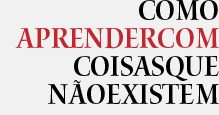2012-ongoing
Ana Lira
In the months of political campaigns, electoral marketing teams construct the candidates’ images in order to win over the public’s empathy and thus its votes. After election day, what is left is printed portraits on posters and pamphlets posted on walls and scattered on sidewalks in many cities. After the 2012 mayoral election in Recife, Ana Lira started documenting these obsolete campaign materials, abandoned by candidates and appropriated by the population through anonymous interventions.

Aided by the passage of time, which whitens the colours and erodes the eloquence of the slogans, acts of ripping parts of the advertisements and covering them with writing and stickers created a layer of critical information. This allowed the citizens’ point of view to shine through and, at least symbolically, stimulated their engagement in the face of a profound crisis of political representation in Brazil and the world at large.
Though initially focussing on the two rounds of Recife’s municipal elections, Ana Lira’s photographyc archive has proceeded, developing into a broad survey that includes older posters and information evincing a cartography of the city, from which the relationships between locales and certain types of intervention can be inferred. During her outings for this study, Lira noticed that most of the posters are found either in the downtown area or neighbourhoods in the outer city limits, with only a weak presence in more upscale areas. This contextual thought aside, the result of the study blots out the settings of the photos, presenting them as metaphors for the breakdown of political methods that also takes place in other regions.

A member of the project Cidades Visuais [Visual Cities] and the Direitos Urbanos [Urban Rights] movement, created in 2012 to address Recife’s urban problems, Lira often provides documentary coverage of her generation’s political activism, both from the inside and out. The images for the project Voto! [Vote!] originated from her work on the documentary film Eleições: crise de representação [Elections: Crisis of Representation], and later took on a life of their own as a photographic series, mobilised by the incessant production of official political portraits. – AMM




